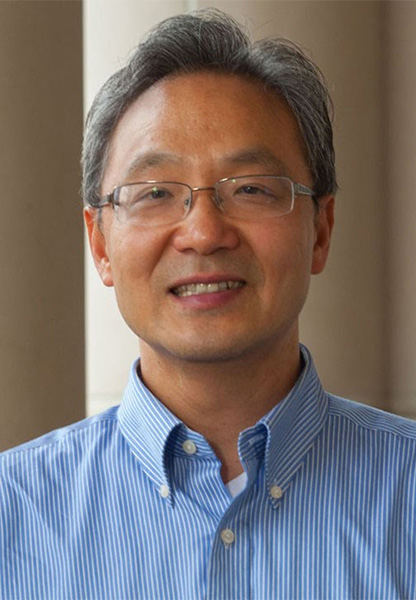Tang, Shui-Yan

Shui-Yan Tang
Shui-Yan Tang’s researches and teaches collaborative governance and governance reform, institutional analysis and design, environmental politics and policy, and common-pool resource governance. He authored Institutions and Collective Action: Self-Governance in Irrigation and Ten Principles for a Rule-ordered Society: Enhancing China’s Governing Capacity. He has also published in several academic journals.
“Find a way to truly enjoy what you do. Nowadays, to be successful one needs to learn about new tools. The more you learn at a younger age, the better equipped you will be in the future.” - Shui-Yan Tang
An, B. Y., Porcher, S., Tang, S. Y., & Maille‐Lefranc, O. 2023. COVID‐19 Emergency Policies, Financial Security, and Social Equity: Worldwide Evidence. Public Administration Review.
Han, Y., & Tang, S. Y. 2022. How quality reporting reduces accountability deficit and overload. Public Management Review, 24(12), 2079-2100.
Li, B., Tang, S. Y., Wang, F., & Yin, H. 2022. Policy implementation through performance measurement: A study of water pollution remediation in China’s Huai River Basin. Review of Policy Research.
Liu, N., Tang, S. Y., Lo, C. W. H., & Zhan, X. 2022. Enforcement officials’ coping strategies in a changing regulatory environment. Public Administration, 100(2), 408-426.
An, B. Y., & Tang, S. Y. 2023. When Agency Priorities Matter: Risk Aversion for Autonomy and Turf Protection in Mandated Collaboration. Journal of Public Administration Research and Theory, 33(1), 106-121.
Dr. Tang was born in Hong Kong in 1960 and lived there until he was 24 years old. He completed a Bachelor of Social Science and Master of Philosophy at The Chinese University of Hong Kong in 1982 and 1984, respectively. While a student at the Chinese University of Hong Kong, he took a class from Andrew Wong, who introduced him to the book Small is Beautiful by Schumacher. The book piqued his interest in decentralized governance.
After completing his master’s degree, he moved to the US.. to pursue his doctoral degree in public policy at Indiana University, Bloomington, where he completed in 1989. During the second year of his doctoral studies, he took the Ostrom workshop, where he dove deeper into polycentricity, common-pool resources, and democratic administration. Dr. Tang got interested in connecting societal governance to environmental governance.
In early 1989, Dr. Tang accepted an invitation to come to LA and give a talk. Soon after, and before completing his dissertation, he received an offer for a faculty position at the University of Southern California’s School of Public Administration (later renamed Sol Price School of Public Policy). He returned to Indiana University and completed and defended his dissertation within six months. Dr. Tang accepted the offer from the University of Southern California (USC), where he continues to teach and conduct research.
Dr. Tang research spans many topics including institutional analysis and design organizational commitment, environmental policy, and collaborative governance. Additionally, he researches common-pool resource governance, microfinance, economic development, and. Dr. Tang authored Institutions and Collective Action: Self-Governance in Irrigation, published in 1992, and Ten Principles for a Rule-Ordered Society: Enhancing China’s Governing Capacity, published in 2012.
His research has been published in Comparative Politics, Governance, Economic Development Quarterly, Environment and Planning, The China Quarterly Human Ecology, Journal of Public Administration Research and Theory, Harvard Business Review Land Economics, Public Administration Review, and World Development. Dr. Tang was the associate editor of the Journal of Public Administration Research and Theory.
Dr. Tang has helped prepare students to become city managers. His work is primarily local. He studies collaborative governance seeking to understand how agreement negotiation strategies between government entities and other sectors. Dr. Tang sees that his scholarly career has built upon his high school learning and continues to grow through his teaching and research. According to Dr. Tang, to have a happy academic life, you must enjoy teaching and love writing.
The National Academy of Public Administration inducted Dr. Tang as a fellow in 2009. Tang has won several awards for his work, including the Harry Scoville Award for Academic Excellence from the Southern California chapter of the American Society for Public Administration.
Dr. Tang had many good mentors throughout his career. Vincent and Elinor Ostrom are two prominent ones who introduced him to the basic philosophical underpinning of his research. Dr. Jim Perry, an internationally recognized public administration leader, was also a strong mentor to him during his graduate studies. At USC, several colleagues served as mentors to Dr. Tang. One was the late Robert Biller, a gifted teacher, collaborative administrator, and distinguished dean.
One of Dr. Tang’s favorite courses is Fundamentals of Public Administration, which he taught many times. He takes pride and joy in teaching. He taught many students who went on to become prominent local government officials.
He had between 10 and 15 doctoral students in the past, many of whom are now teaching in Hong Kong, Mainland China, Taiwan, Korea, and the US. Some also worked in the industry in countries including the Philippines. He has co-authored papers with his students and truly enjoyed working with them.
“Find a way to truly enjoy what you do. Nowadays, to be successful one needs to learn about new tools. The more you learn at a younger age, the better equipped you will be in the future.”
“Learn to enjoy writing. Especially if you desire to pursue an academic career path. Use a consistent approach guided by underlying philosophies. If everything fits together well, you will have a balanced life” (2005).
Tang, Shui Yan. n.d. Home [https://www.linkedin.com/in/shui-yan-tang-4b40b088/]. LinkedIn. Retrieved May 25, 2023 from https://www.linkedin.com/in/shui-yan-tang-4b40b088/.
Taylor, Dorceta (Ed.). 2005. The Paths We Thread: Profiles of the Careers of Minority Environmental Professionals. Minority Environmental Leadership Development Initiative, University of Michigan School of Natural Resources and Environment.